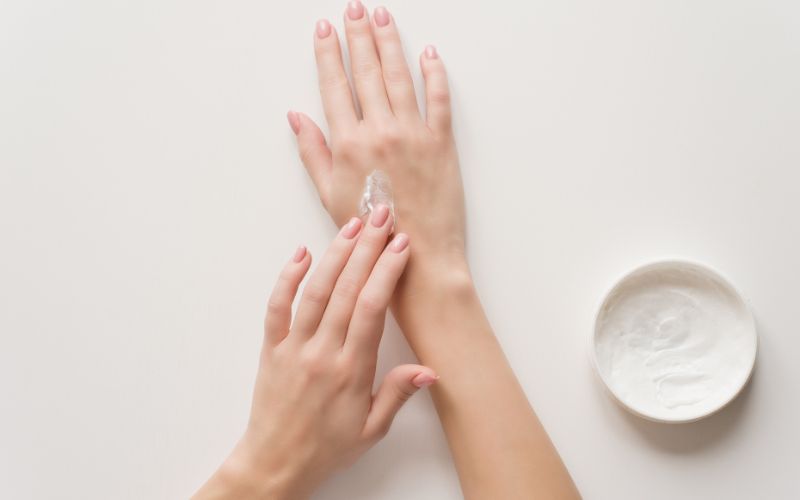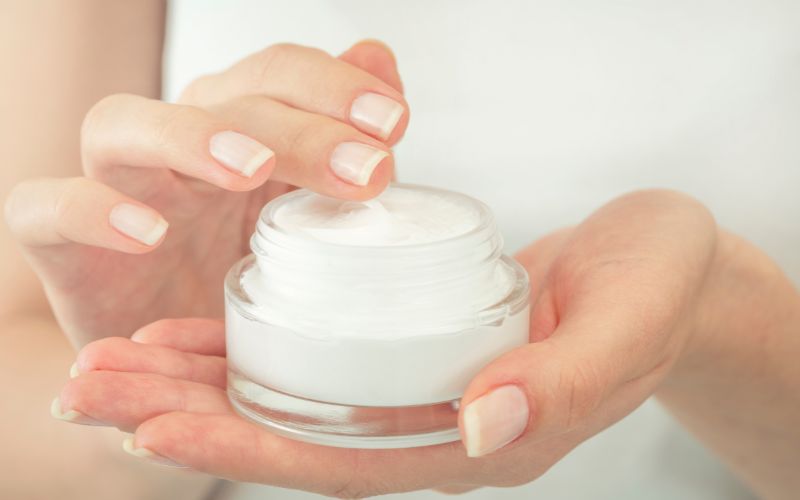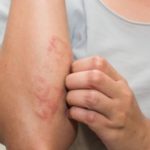With seasonal changes, especially the transition from winter to spring, the risk of allergies increases for those with eczema. Here are some small lifestyle changes that can help alleviate symptoms and bring comfort to those suffering from allergic dermatitis.
1 Find a Suitable Exercise Routine
Many people experience discomfort due to eczema flare-ups after exercising, which is actually caused by sweat remaining on the skin.
Sweating during exercise helps maintain a cool body temperature; however, this process can strip the skin of its natural oils, leading to dryness and itchiness.
To address this, exercisers should aim to reduce excessive sweating and change out of sweaty clothes promptly after a workout. Prefer cooler times of the day, such as early morning or evening, and opt for a well-ventilated environment.
You can also break up your workout into smaller segments and stay hydrated to keep your body comfortable, reducing sweat and skin irritation caused by elevated body temperature.
 Find a Suitable Exercise Routine
Find a Suitable Exercise Routine
2 Resist the Urge to Scratch
Scratching an itch can intensify and spread it to other areas. Therefore, it is best to refrain from scratching to prevent exacerbating the eczema.
 Resist the Urge to Scratch
Resist the Urge to Scratch
3 Opt for Breathable Clothing
In addition to preventing sweat from lingering on the skin, choose breathable clothing made from natural fibers like cotton and avoid materials such as polyester and nylon, as they can make you sweat more.
Also, wear clothes that fit comfortably, not too tight, to minimize unnecessary friction between your skin and the fabric.
 Opt for Breathable Clothing
Opt for Breathable Clothing
4 Moisturize More Often
For those with eczema, moisturizers are essential to lock in moisture and hydrate the skin. It is advisable to apply moisturizer after washing your hands or taking a bath.
 Moisturize More Often
Moisturize More Often
5 Try Cold Compresses or Anti-Itch Creams
To suppress the urge to scratch, you can soothe itchy spots with anti-itch creams or apply a cold compress for 5-10 minutes to effectively reduce swelling and itching.
 Try Cold Compresses or Anti-Itch Creams
Try Cold Compresses or Anti-Itch Creams
6 Consult a Dietitian
To prevent eczema from worsening, identify and avoid foods that trigger flare-ups. Eliminating irritants and incorporating anti-inflammatory foods can effectively prevent the condition.
Some natural anti-inflammatory foods include fruits, whole grains, and sardines.
 Consult a Dietitian
Consult a Dietitian
7 Manage Stress Levels
Did you know that stress can trigger eczema and intensify itching? Moreover, when stressed, people tend to neglect skin care and personal hygiene, aggravating the condition.
Therefore, it is advisable to maintain a relaxed mindset and manage stress through exercise, reading, or listening to music.
 Manage Stress Levels
Manage Stress Levels
8 Modify Body Care Habits
Pay attention to the ingredients of skincare products before purchasing and using them, ensuring they do not contain irritants such as sulfates, lanolin, propylene glycol, cocamidopropyl betaine, ethanol, or synthetic fragrances.
Opt for products with gentle, skin-friendly ingredients. Instead of spraying perfume directly onto your skin, spray it onto your clothes to prevent irritation.
Avoid bathing with very hot water, as it can strip your skin of its natural oils. After bathing, gently pat your skin dry with a soft towel and apply moisturizer.
 Modify Body Care Habits
Modify Body Care Habits
These are eight simple lifestyle changes to alleviate allergic dermatitis. From moisturizing and maintaining a healthy diet to stress management, each aspect plays a crucial role in preventing the condition from worsening.
Source: PhunuVietNam Newspaper






































